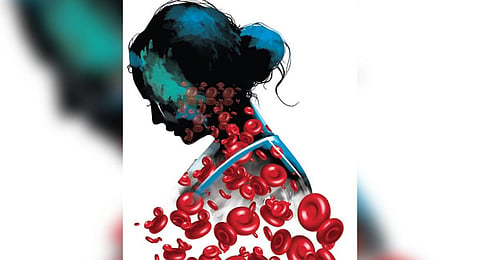

BENGALURU: As we step into 2025, challenges from 2024 still loom large. Issues such as rising maternal deaths and the spread of counterfeit medicines have exposed serious weaknesses in the state’s healthcare system. In 2024, the state introduced several key laws, including the hookah ban, colour ban, and Gruha Arogya scheme, which positioned it for progress. However, experts warn that 2025 must be the year when these laws are fully implemented, ensuring they bring about real change and impact.
Dr Ramesh GH, head of Emergency and Critical Care at BMCRI, emphasized that while 2024 brought a series of alarming incidents, they all underscored that without a solid foundation, the lives of countless individuals who rely on government healthcare facilities will continue to be at risk. From strengthening critical care units and emergency departments to ensuring properly trained staff and robust infrastructure, these are the essential steps the state must take. Only then can it truly live up to the promises it has made and deliver the quality care it claims to provide.
Pointing to incidents like the Rameshwaram Cafe blast, which hit and left victims and their families in shock, Dr Ramesh underlined the urgent need for a strong disaster management system.
Such emergencies result in life-threatening injuries — lung damage, brain trauma, eye injuries, eardrum perforations, abdominal wounds and broken bones. In these moments, emergency physicians, along with paramedics, nurses, and other support staff, are critical in saving lives, performing life-saving procedures on the spot or at the hospital. The state must prioritize building a robust disaster management system to handle such situations effectively, he said.
In the light of a series of maternal health issues that were reported in Ballari, Dr Vishal Rao, Group Director, Head and Neck Surgical Oncology and Robotic Surgery, HCG Cancer Centre, stressed that the state government needs to shift its focus from just maternal health to overall women’s health.
He stressed that a woman’s health is shaped long before motherhood, starting as early as the age of 9. Ignoring this crucial phase leads to situations like maternal deaths and life-threatening complications. Vaccination and screening for girls aged 9-14 cannot wait.
He warned that while many laws have been introduced, the true state of the health department will be judged by its actions, not promises. Without timely implementation and strong support, the system risks failing an entire generation.
Dr Manoj Sharma, Professor of Clinical Psychology and coordinator of the Service of Healthy Use of Technology (SHUT) clinic at Nimhans, stressed the urgent need for the government to implement awareness campaigns addressing the growing problem of screen time addiction and its harmful effects.
He pointed out that children are becoming increasingly dependent on digital media, which is leading to serious behavioral and health concerns like obesity. Immediate action is required to tackle this rising issue and safeguard the well-being of the younger generation.
Dr Manoj also pointed out that a growing number of people are facing mental health issues after falling victim to cybercrime, and stressed the need for strong awareness campaigns to address this issue and help individuals recognize and protect themselves from such threats.
The integration of advanced technologies could make 2025 a transformative year for healthcare, Dr Vivek Jawali, chairman of Cardiac Sciences at Fortis Hospital, said. He highlighted how AI in medicine can revolutionize patient care by enabling personalized treatment and preventive strategies, significantly improving outcomes. It also has the potential to enhance responses to global crises such as pandemics, wars, famine and climate change, he said.
While Dr Jawali stressed the advancements in gene technologies which promise groundbreaking progress in cancer treatment and gene editing, he warned that the rising costs of these innovations pose a serious challenge, and their benefits will ultimately depend on how governments balance affordability with accessibility.